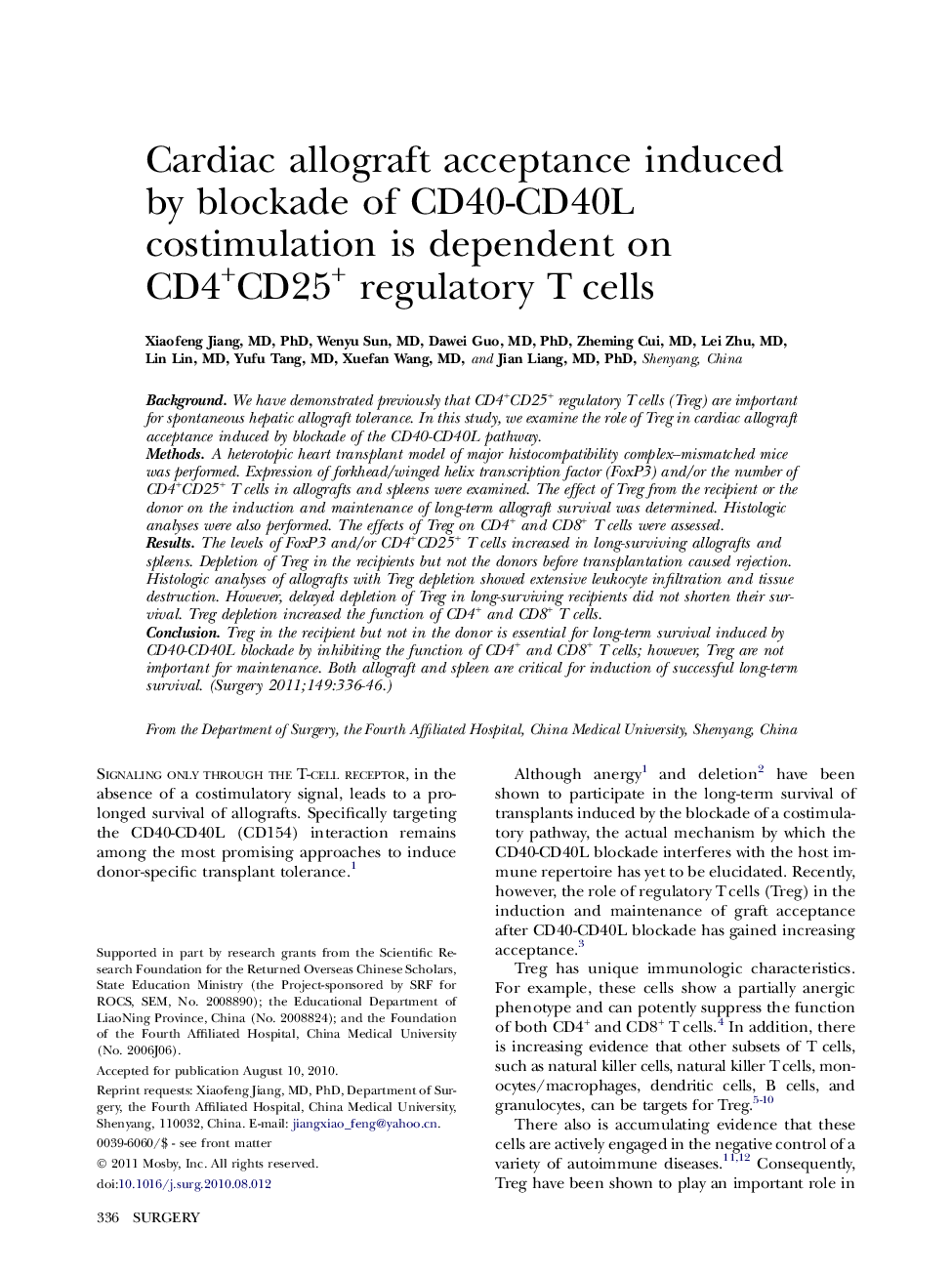| Article ID | Journal | Published Year | Pages | File Type |
|---|---|---|---|---|
| 4308167 | Surgery | 2011 | 11 Pages |
BackgroundWe have demonstrated previously that CD4+CD25+ regulatory T cells (Treg) are important for spontaneous hepatic allograft tolerance. In this study, we examine the role of Treg in cardiac allograft acceptance induced by blockade of the CD40-CD40L pathway.MethodsA heterotopic heart transplant model of major histocompatibility complex–mismatched mice was performed. Expression of forkhead/winged helix transcription factor (FoxP3) and/or the number of CD4+CD25+ T cells in allografts and spleens were examined. The effect of Treg from the recipient or the donor on the induction and maintenance of long-term allograft survival was determined. Histologic analyses were also performed. The effects of Treg on CD4+ and CD8+ T cells were assessed.ResultsThe levels of FoxP3 and/or CD4+CD25+ T cells increased in long-surviving allografts and spleens. Depletion of Treg in the recipients but not the donors before transplantation caused rejection. Histologic analyses of allografts with Treg depletion showed extensive leukocyte infiltration and tissue destruction. However, delayed depletion of Treg in long-surviving recipients did not shorten their survival. Treg depletion increased the function of CD4+ and CD8+ T cells.ConclusionTreg in the recipient but not in the donor is essential for long-term survival induced by CD40-CD40L blockade by inhibiting the function of CD4+ and CD8+ T cells; however, Treg are not important for maintenance. Both allograft and spleen are critical for induction of successful long-term survival.
